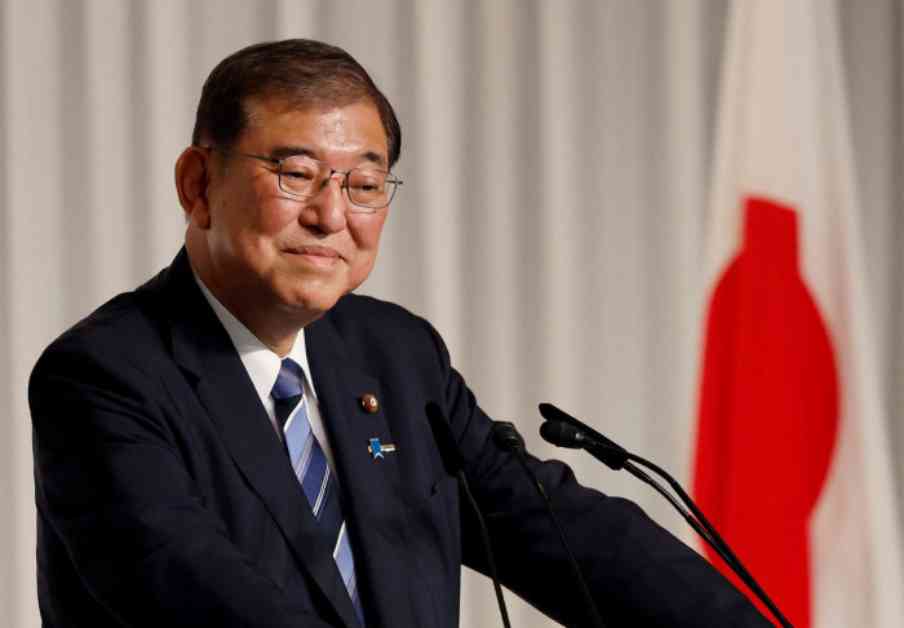Former defense minister Shigeru Ishiba emerged victorious in the ruling Liberal Democratic Party’s leadership vote, securing his position as Japan’s next prime minister. He will succeed Fumio Kishida and be sworn in as the country’s 102nd prime minister on October 1. Ishiba’s win marks a significant shift in leadership and economic direction for Japan, as he has emphasized the need to address deflation and revitalize the economy.
In a news conference following his victory, Ishiba highlighted the importance of Japan fully recovering from deflation. He stressed the need to boost consumption and support households amid rising inflation. Ishiba pledged to continue and accelerate Kishida’s policies aimed at increasing household income through wage hikes. His commitment to addressing economic challenges resonated with voters and investors, leading to a positive response in the financial markets.
The yen experienced fluctuations following Ishiba’s win, eventually stabilizing after initial uncertainty. As a former defense minister known for his critical stance on aggressive monetary stimulus measures, Ishiba’s victory signals a potential shift in Japan’s economic policies. While he did not directly comment on monetary policy during the news conference, analysts anticipate that Ishiba’s leadership may provide the Bank of Japan with more flexibility in raising interest rates.
With the victory of Ishiba over Sanae Takaichi, a supporter of former premier Shinzo Abe’s economic policies, Japan is poised for a new era of economic governance. Ishiba’s win is seen as a departure from the era of “Abenomics” and a step towards a more balanced approach to monetary policy. Economists predict that Ishiba’s administration may pave the way for a normalization of monetary policy, potentially leading to interest rate hikes in the near future.
In terms of economic strategy, Ishiba is expected to focus on combating rising food and fuel prices through a fresh stimulus package funded by a supplementary budget. His administration aims to address the impact of inflation on households while promoting sustainable economic growth. Governor Kazuo Ueda, appointed by Kishida, has already taken steps to transition away from radical monetary stimulus measures, signaling a gradual shift towards a more stable economic environment.
As Ishiba prepares to assume the role of prime minister, he faces the challenge of steering Japan towards recovery and stability. His emphasis on addressing deflation and supporting household income reflects a commitment to revitalizing the economy. With the backing of the ruling party and a clear mandate from voters, Ishiba’s leadership is poised to bring about significant changes in Japan’s economic landscape.
Challenges Ahead
Despite the optimism surrounding Ishiba’s victory, challenges lie ahead for his administration. Balancing economic growth with inflation control will require strategic planning and effective policy implementation. Ishiba’s commitment to addressing deflation must be accompanied by measures to boost consumer spending and stimulate investment.
Global Economic Uncertainties
The global economic landscape presents additional challenges for Japan’s economic recovery. External factors such as trade tensions, geopolitical risks, and fluctuating commodity prices could impact Japan’s economic growth trajectory. Ishiba’s administration will need to navigate these uncertainties while maintaining a focus on domestic economic priorities.
Collaboration and Consensus
Achieving sustainable economic growth will require collaboration and consensus-building among various stakeholders. Ishiba’s leadership style and ability to work with diverse groups will be essential in driving economic reforms and policy initiatives. Building a coalition of support within the government and the business community will be crucial for implementing long-term economic strategies.
In conclusion, Shigeru Ishiba’s election as Japan’s next prime minister marks a significant turning point in the country’s economic direction. His emphasis on addressing deflation, boosting household income, and promoting sustainable growth reflects a commitment to revitalizing Japan’s economy. As Ishiba prepares to assume office, he faces the challenges of navigating global economic uncertainties, implementing effective policies, and building consensus among key stakeholders. The coming months will be crucial in determining the success of Ishiba’s economic agenda and its impact on Japan’s future prosperity.




















